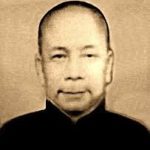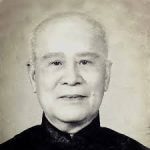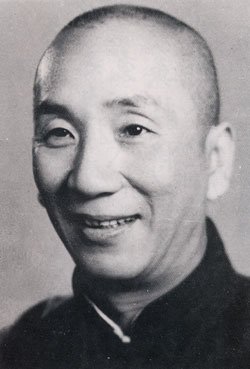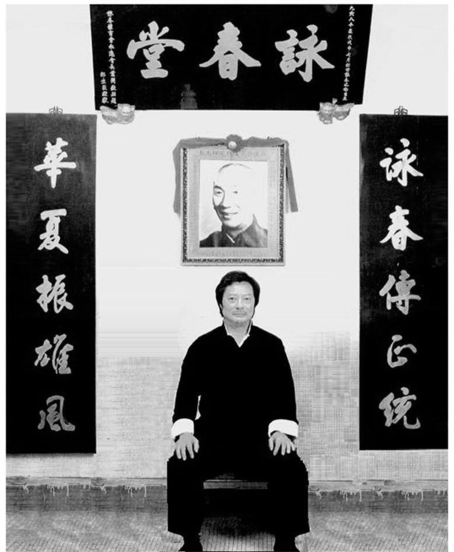WSL/PB Ving Tsun


LEUNG JAN & LEUNG BIK
While many different accounts mention controversial events in regards to the origins of the system and how it was transferred, there is no debate around the legendary Leung Jan (梁贊).
Leung Jan was a Chinese herbal doctor in Foshan, China. Historical accounts also recognize him by the title “Mr. Jan of Foshan” (佛山贊先生). He was the pride of the region and was known all across China. Wing Chun has a history of champion students like Wong Shun Leung, but the first to gain this type of recognition was Leung Jan. Mr. Jan of Foshan was also known for:
The King of Wing Chun (詠春拳王) from being undefeated for over 300 challenge fights from all sorts of different styles.
The systematization of the Wing Chun system, creation of the standard forms and learning methods to create consistency in the system.
He had several students throughout his life, among them were his sons. One of his sons would go on to directly teach a young Yip Man in Hong Kong by chance, his name was Leung Bik (梁壁).

YIP MAN (IP MAN)
The late Yip Man was the very master that has been accredited for the instruction of Bruce Lee.
Yip Man was the first to bring Wing Chun Kung Fu from its maiden land of Foshan, China to Hong Kong. There, Yip Man would go on to teach Wing Chun for the remainder of his life.
Having taught very high profile individuals such as, Wong Shun Leung and Bruce Lee, Wing Chun had gained global recognition. Numerous documentaries and feature films have been made in honor of the late Yip Man.

WONG SHUN LEUNG (1935-1997)
Early Life and Background
Wong Shun Leung was born on June 8, 1935, in Hong Kong. From a young age, he demonstrated a keen interest in martial arts, initially training in various disciplines, including Western boxing and several traditional Chinese martial arts. However, his path took a definitive turn when he began training under the legendary Wing Chun master Ip Man. This training set the foundation for Wong’s future in martial arts.
Development of Ving Tsun
Under Ip Man’s tutelage, Wong Shun Leung rapidly became one of his top students. Known for his practical approach and combat effectiveness, Wong participated in numerous “beimo” (challenge fights) where he tested and refined Wing Chun techniques against practitioners of various other martial arts. His success in these encounters earned him the nickname “King of the Beimo.”
Wong’s approach to Wing Chun, often referred to as the “Wong Shun Leung Method” or Ving Tsun, emphasized realism, efficiency, and scientific principles. He focused on biomechanics, the psychology of combat, and the practical application of techniques. Wong stressed understanding the core concepts of Wing Chun rather than merely memorizing forms or techniques, advocating for adaptability and practical application in real-world scenarios.
Impact on Students and Legacy
Wong Shun Leung’s influence extended far beyond his own practice. One of his most famous students was Bruce Lee, who credited Wong with significantly shaping his martial arts philosophy. Lee’s development of Jeet Kune Do was heavily influenced by the principles he learned from Wong.
Another notable student was Philipp Bayer, a prominent martial artist who has continued to promote and teach Wong Shun Leung’s interpretation of Wing Chun. Bayer has been instrumental in preserving and disseminating Wong’s teachings, ensuring that the Wong Shun Leung Method remains influential in the global martial arts community.
Wong’s teaching style was rigorous and emphasized realistic application. He encouraged his students to question, explore, and test techniques, fostering a deep and practical understanding of the art. His pragmatic approach resonated with many, ensuring that his version of Wing Chun was both effective and adaptable.
Later Years and Death
Wong Shun Leung continued to teach and refine his martial art throughout his life. He remained a respected figure in the martial arts community, often sought for his insights and expertise. Wong passed away on January 28, 1997, but his legacy lives on through his students and the lasting impact he made on the world of martial arts.
Conclusion
Wong Shun Leung’s contributions to Wing Chun and martial arts are profound and enduring. Through his practical approach, innovative methods, and dedication to teaching, he not only preserved but also enhanced the art of Wing Chun. His influence is evident in the success and prominence of his students, such as Bruce Lee and Philipp Bayer, and in the widespread recognition of his teachings. Wong Shun Leung’s legacy continues to inspire and shape martial artists around the world.